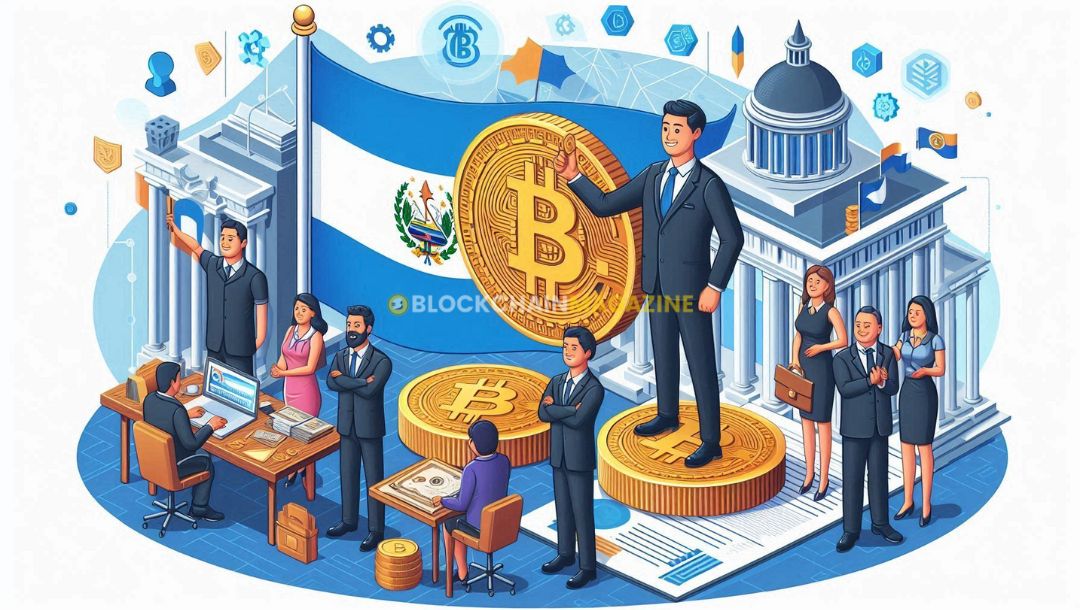In a bold initiative that underscores its commitment to cryptocurrency, El Salvador’s National Bitcoin Office (ONBTC) has unveiled an extensive training program designed to equip 80,000 government employees with in-depth knowledge and certifications in Bitcoin management and policy.
This Central American nation, renowned for its pioneering stance on Bitcoin adoption, has introduced a 160-hour virtual and asynchronous training course titled “Certification in Public Administration 1.” The course is meticulously divided into seven modules, each covering critical concepts, legislative frameworks, and management skills essential for leveraging Bitcoin as legal tender in public administration.
Forging a Bitcoin-Proficient Workforce
Stacy Herbert, the director of ONBTC, envisions this educational endeavor as a catalyst for exponential growth in El Salvador’s Bitcoin-centric economy. With a focus on long-term success, Herbert plans to roll out additional educational initiatives, emphasizing the enduring impact of these low time-preference projects on the nation’s economic future.
“These education projects are strategic commitments to the long-term success of El Salvador and its Bitcoin (and tech) policy,” Herbert remarked, highlighting the broader vision behind the certification drive.
The Higher School of Innovation in Public Administration (ESIAP), inaugurated by President Nayib Bukele in August 2021, spearheads this ambitious program. The curriculum is crafted with precision to elevate the standards of governance and public administration across El Salvador, ensuring that civil servants are well-versed in the nuances of Bitcoin and its integration into national policy.
Also, read – Bitcoin Surges Beyond $61K as XRP Leads the Pack in Market Gains
Global Attention on El Salvador’s Bitcoin Success
El Salvador’s groundbreaking success in integrating Bitcoin into its economy has not gone unnoticed on the global stage, particularly among nations grappling with hyperinflation. Argentina, in particular, has sought to learn from El Salvador’s experience in Bitcoin adoption.
In May, Argentina’s National Securities Commission (CNV) initiated discussions with El Salvador’s National Commission of Digital Assets (CNAD), exploring the potential for collaboration on cryptocurrency adoption and regulatory frameworks. This dialogue reflects Argentina’s growing interest in crypto, especially under the leadership of Bitcoin-friendly politician Javier Milei, who ascended to the presidency in late 2023.
“We are keen to strengthen ties with the Republic of El Salvador and explore possibilities for formal collaboration,” an Argentine official stated, indicating a shared ambition to harness the potential of cryptocurrency in stabilizing economies.
With Argentina already implementing registration requirements for crypto firms and actively experimenting with digital assets, the exchange of knowledge between these two nations signals a significant shift towards broader acceptance and integration of cryptocurrencies in global financial systems.
El Salvador’s forward-thinking approach to Bitcoin education, exemplified by this certification program, positions the nation as a beacon of innovation, setting a precedent for others to follow in the evolving landscape of digital finance.

 Bitcoin
Bitcoin  Ethereum
Ethereum  Tether
Tether  XRP
XRP  Solana
Solana  Dogecoin
Dogecoin  USDC
USDC  Cardano
Cardano  Lido Staked Ether
Lido Staked Ether  TRON
TRON  Avalanche
Avalanche  Sui
Sui  Wrapped stETH
Wrapped stETH  Toncoin
Toncoin  Chainlink
Chainlink  Shiba Inu
Shiba Inu  Wrapped Bitcoin
Wrapped Bitcoin  Stellar
Stellar  Hedera
Hedera  Polkadot
Polkadot  WETH
WETH  LEO Token
LEO Token  Bitcoin Cash
Bitcoin Cash  Uniswap
Uniswap  Litecoin
Litecoin  Pepe
Pepe  Hyperliquid
Hyperliquid  Wrapped eETH
Wrapped eETH  NEAR Protocol
NEAR Protocol  Ethena USDe
Ethena USDe  USDS
USDS  Internet Computer
Internet Computer  Aptos
Aptos  Aave
Aave  Mantle
Mantle  POL (ex-MATIC)
POL (ex-MATIC)  Cronos
Cronos  Render
Render  Ethereum Classic
Ethereum Classic  MANTRA
MANTRA  Bittensor
Bittensor  Monero
Monero  Tokenize Xchange
Tokenize Xchange  Dai
Dai  Artificial Superintelligence Alliance
Artificial Superintelligence Alliance  Virtuals Protocol
Virtuals Protocol  Arbitrum
Arbitrum 



